Vegan Globetrotter is supported by our audience. When you purchase through one of our links, we may earn a small affiliate commission. As an Amazon Associate I earn from qualifying purchases. Your cost is not affected.
==================
In a vegan diet where one must obtain all essential nutrients without animal products, “Seeds Health” stands out as a nutritional powerhouse. Jam-packed with vitamins, minerals, protein, and healthy fats, they can be crucial in ensuring a balanced plant-based diet. Functional for their size, seeds like flaxseeds, chia seeds, and hemp seeds offer a dense source of Omega-3 fatty acids, important for cardiovascular health, brain function, and reducing inflammation.
Seeds Health: Maximizing Nutritional Value and Integration in a Vegan Diet
Recognizing the best seeds to include in a vegan diet is not only about identifying which ones have the highest nutritional value but also about understanding how to integrate them into daily meals. Whether sprinkled on top of salads, blended into smoothies, or baked into bread, seeds are incredibly versatile. Adapting your diet to include a variety of seeds can help in reaching the recommended daily intake of essential nutrients while maintaining freshness and minimizing potential allergens.
Key Takeaways on Seeds Health
- Seeds are integral for a balanced vegan diet, providing essential Omega-3 fatty acids and proteins.
- The versatility of seeds allows them to be easily incorporated into various vegan dishes.
- Choosing a variety of seeds can help meet daily nutrient requirements while considering allergies and optimal storage.
Essential Nutrients in a Vegan Diet
A vegan diet can provide all the necessary nutrients for good health, but one must be mindful to include a variety of foods that are rich in proteins, fats, vitamins, minerals, and fiber.
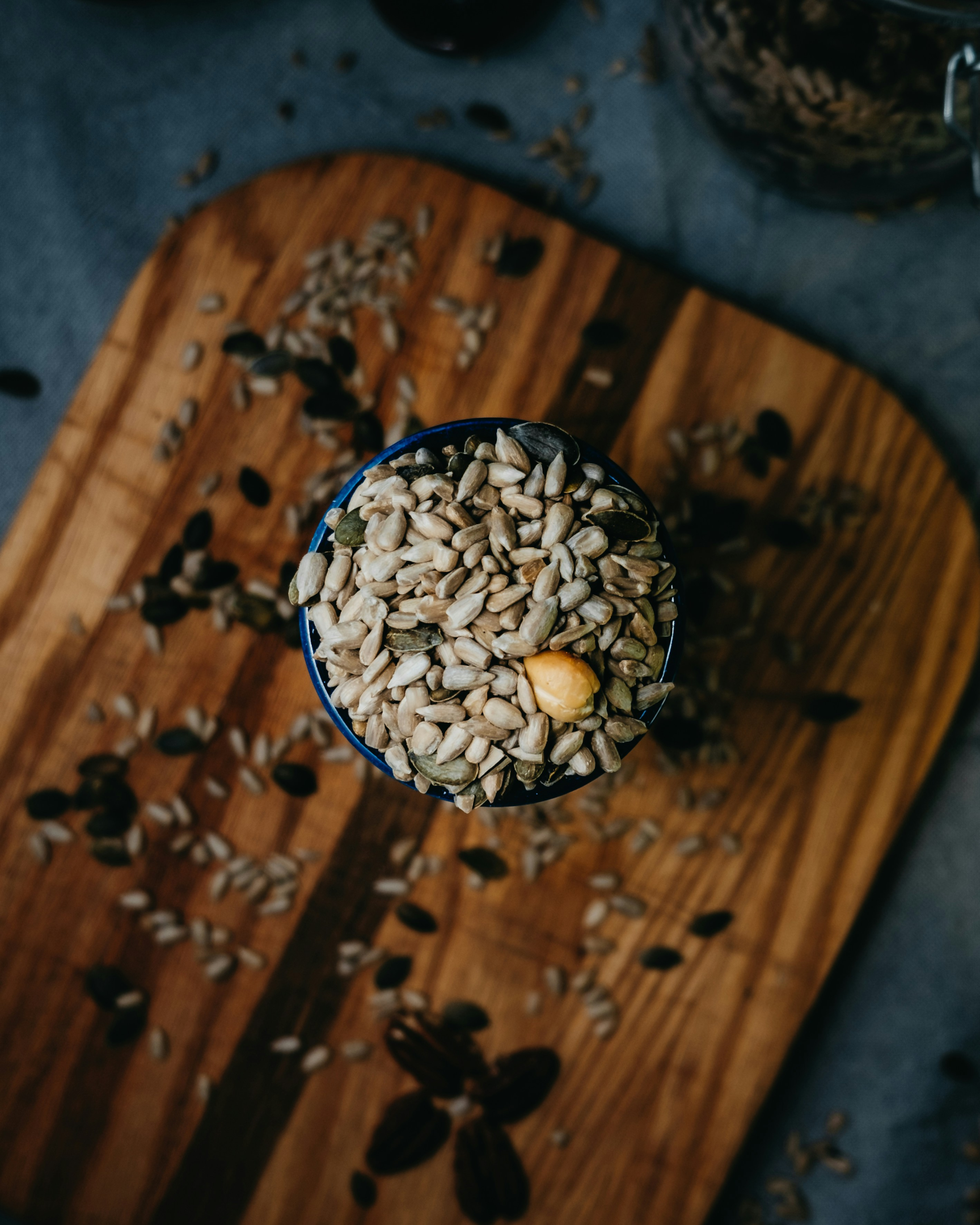 Photo by Cathal Mac an Bheatha on Unsplash
Photo by Cathal Mac an Bheatha on Unsplash
Proteins and Amino Acids
Proteins are vital for body functions such as cell repair and muscle growth. Vegans can obtain essential amino acids from plant-based protein sources like lentils, chickpeas, and quinoa. It is crucial for vegans to combine different protein sources to ensure they are getting a complete amino acid profile.
Fatty Acids and Omega-3s
Omega-3 fatty acids are important for heart health and brain function. They aren’t naturally produced by the body, so they must be obtained from the diet. Sources of plant-based omega-3s include flaxseeds, chia seeds, and walnuts. To improve omega-3 intake, vegans should regularly include these fatty acids in meals.
Vitamins and Minerals on Seeds Health
Vitamins and minerals are essential for maintaining bodily functions and preventing deficiencies. Vegans should ensure they are getting enough iron, calcium, zinc, and vitamin B12, which can be found in fortified foods and supplements. It’s especially important for vegans to consume vitamin B12, which is primarily found in animal products, through fortified foods or supplements.
Fiber Content and Digestive Health
Fiber is crucial for digestive health and can be found abundantly in a vegan diet. Plant-based foods like fruits, vegetables, whole grains, legumes, nuts, and seeds are excellent sources of fiber. Regular consumption of these foods can promote digestive health and prevent conditions like constipation and diverticulosis.
Top Healthiest Seeds for Vegans
In a vegan diet, seeds are vital for their high protein content and essential fatty acids. Here’s a look at some seeds that provide exceptional nutritional benefits.
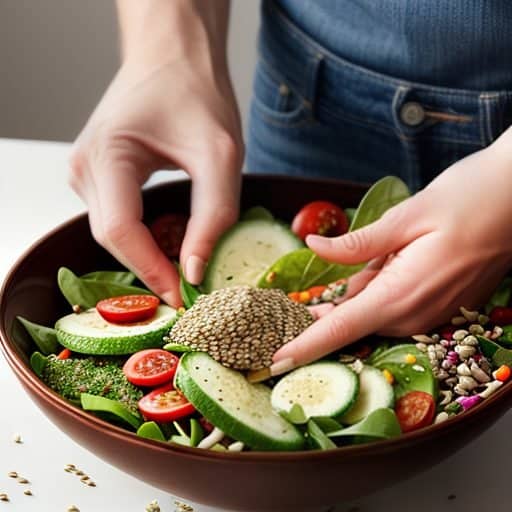
Seeds Health: Chia Seeds
Chia seeds are a powerhouse of nutrients, offering a significant amount of omega-3 fatty acids, fiber, and minerals such as calcium, making them beneficial for bone health. Two tablespoons provide approximately 11 grams of fiber and 4 grams of protein.
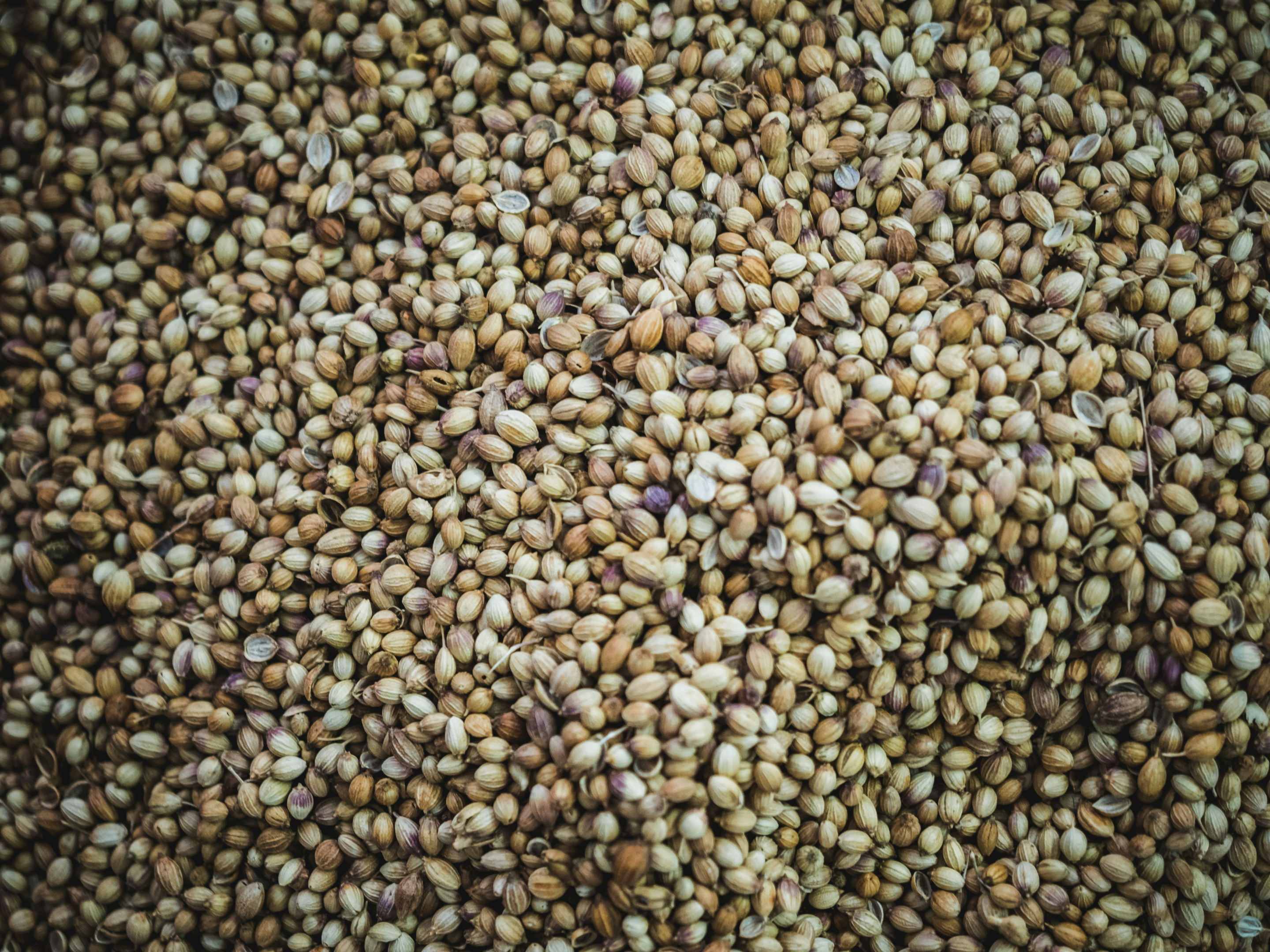 Photo by Goh Rhy Yan on Unsplash
Photo by Goh Rhy Yan on Unsplash
Seeds Health: Hemp Seeds
Hemp seeds sometimes referred to as hemp hearts, are an excellent protein source and are rich in omega-6 and omega-3 fatty acids, which promote heart health. A 30-gram serving contains about 9.5 grams of protein.
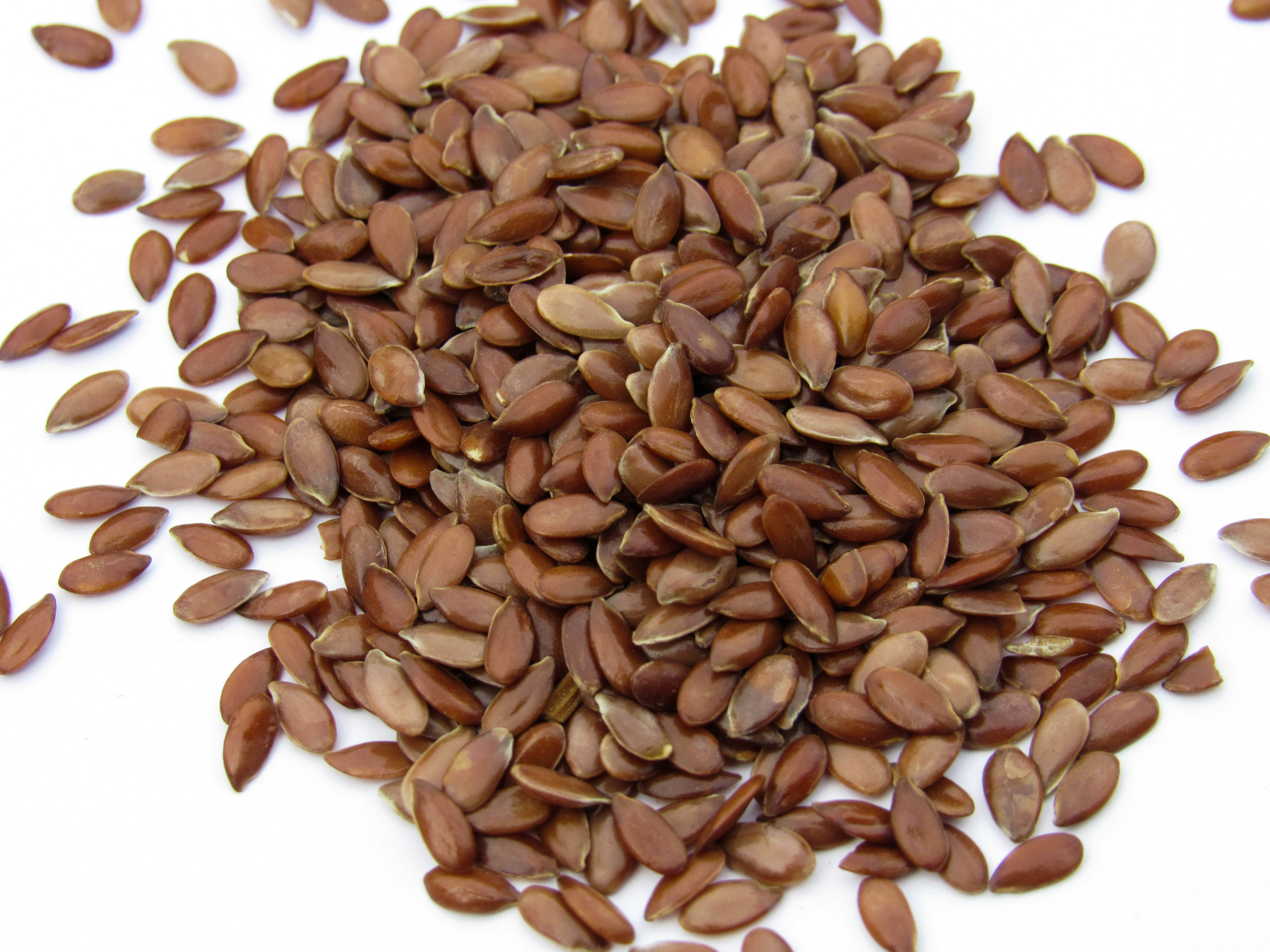 Photo by Karyna Panchenko on Unsplash
Photo by Karyna Panchenko on Unsplash
Seeds Health: Flaxseeds
Flaxseeds are renowned not only for their fiber content, enhancing digestive health but also for their high levels of alpha-linolenic acid (ALA), a plant-based omega-3 fatty acid. Ground flaxseeds are easier for the body to digest than whole seeds.
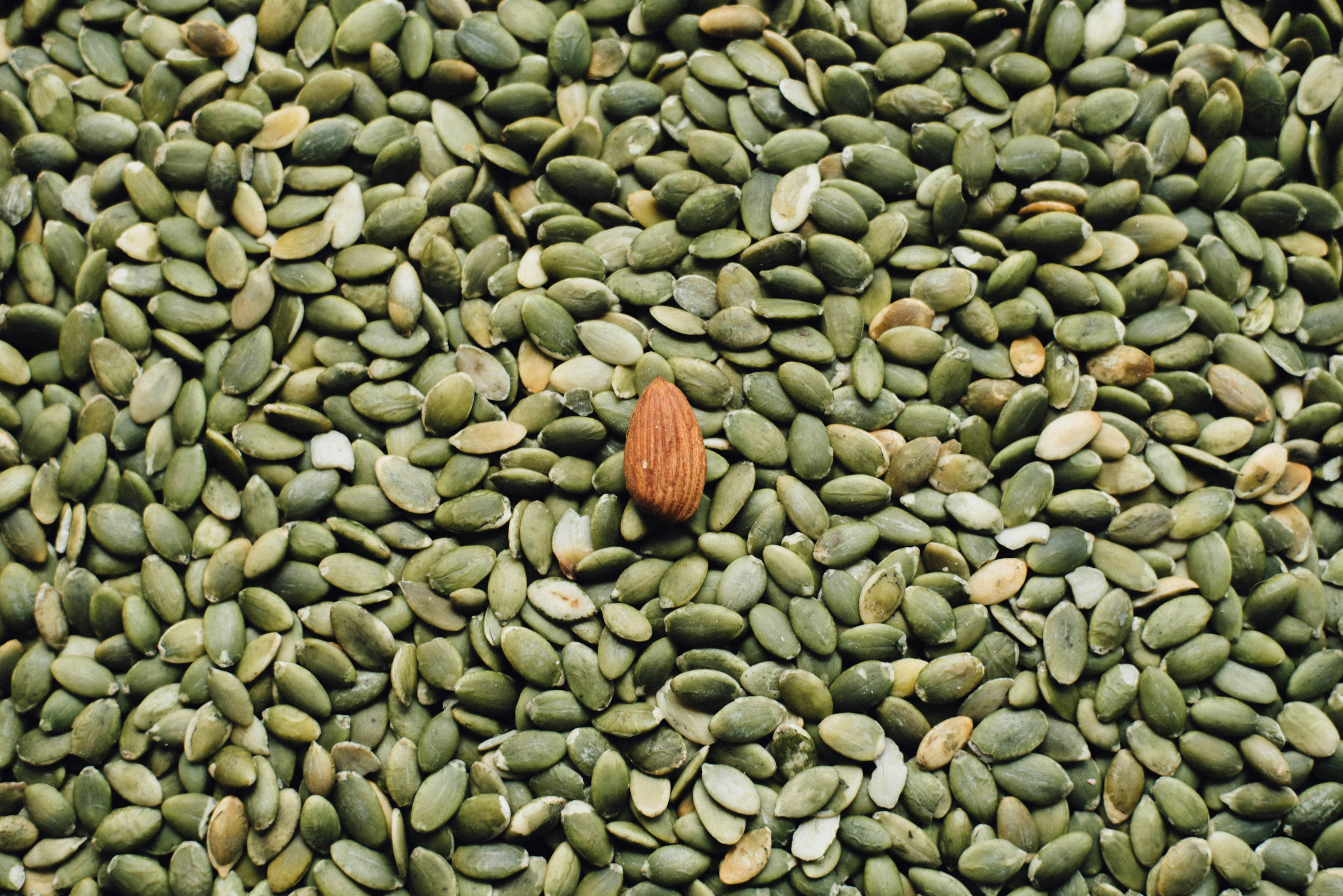 Photo by CHUTTERSNAP on Unsplash
Photo by CHUTTERSNAP on Unsplash
Seeds Health: Pumpkin Seeds
Also known as pepitas, pumpkin seeds are a good source of magnesium, zinc, and fats that benefit heart health. They are also high in antioxidants and contain 7 grams of protein per 1-ounce serving.
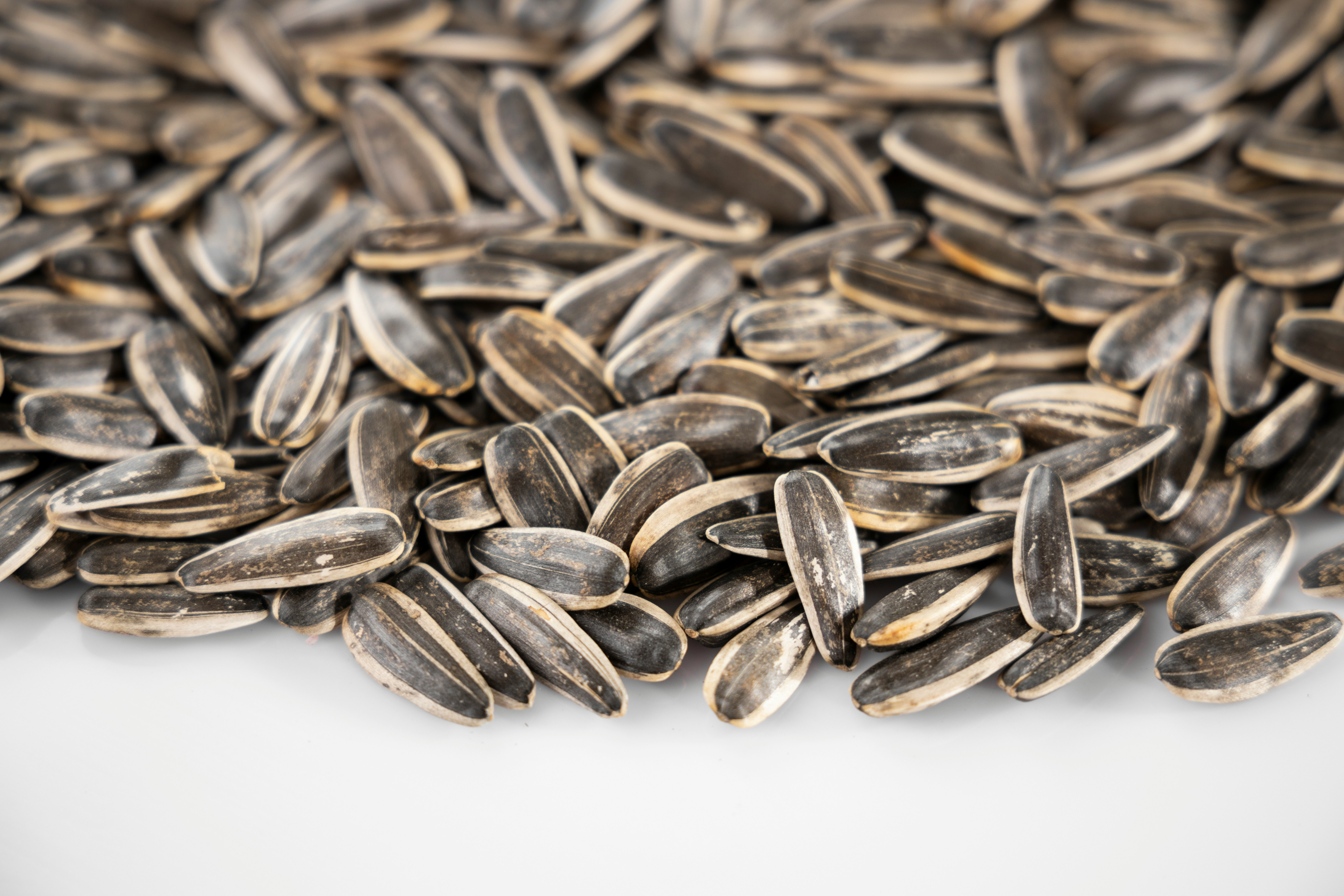 Photo by engin akyurt on Unsplash
Photo by engin akyurt on Unsplash
Seeds Health: Sunflower Seeds
Sunflower seeds are rich in vitamin E, an antioxidant that plays a crucial role in skin health and immune function. They also provide protein, healthy fats, and minerals like selenium.
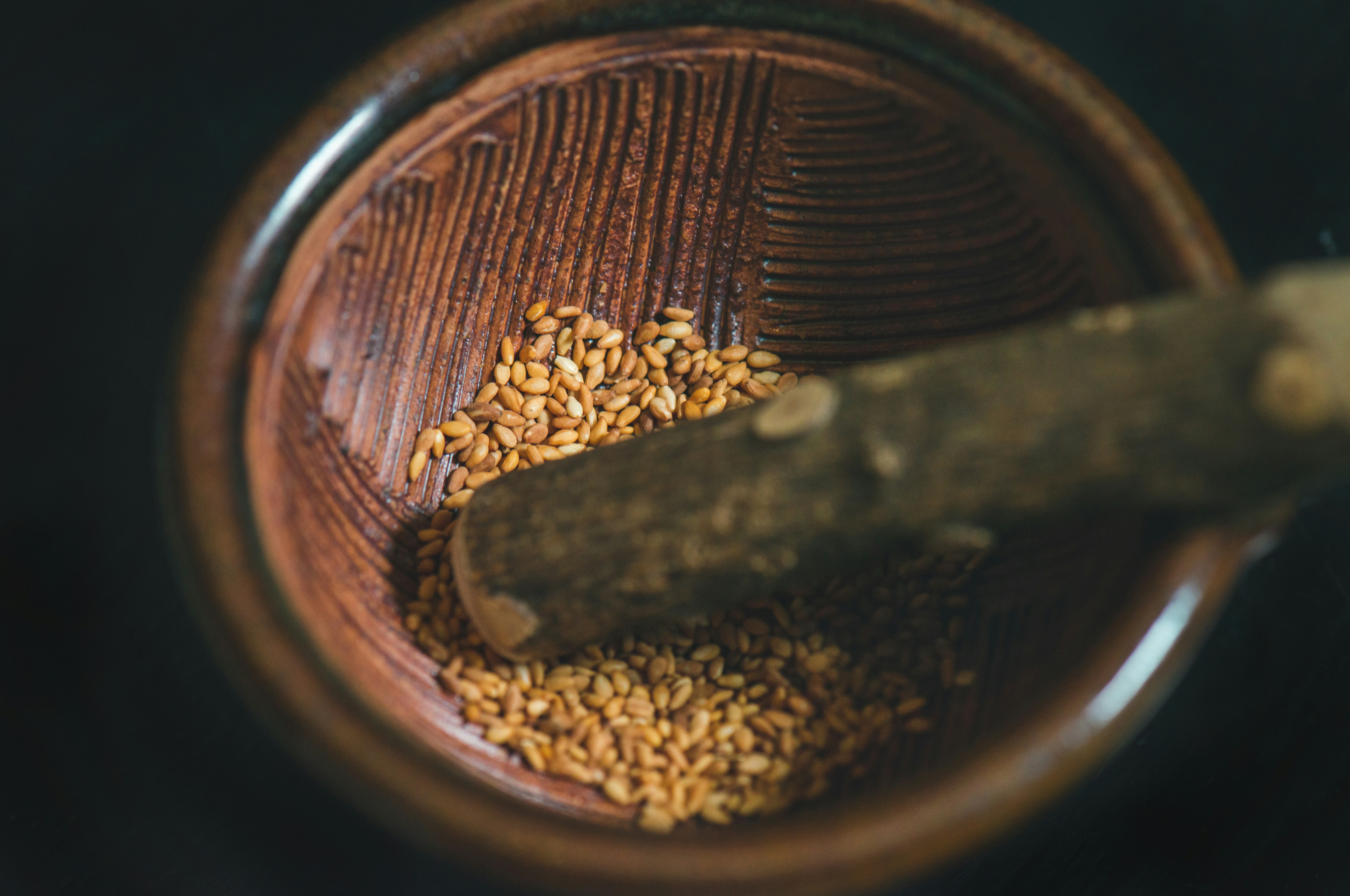
Seeds Health: Sesame Seeds
Sesame seeds often blended into tahini, are not only valuable for their rich nutty flavor but also for their calcium content, making them an important seed for bone health. They also contain lignans, which may help in balancing hormones.
Incorporating Seeds into a Vegan Diet
Seeds are a nutritional powerhouse for vegans, offering essential proteins, fats, and vitamins. Here’s how to integrate them into various meals and snacks.

Smoothies and Beverages
One of the simplest ways to add seeds into a vegan diet is through smoothies and beverages. Chia seeds, for example, can be mixed into smoothies to thicken them and provide extra fiber and omega-3 fatty acids. For a nutrient boost, adding ground flax seeds to a morning shake enhances the drink’s protein content.
Soups and Salads
Seeds make great toppings for soups and salads, contributing both texture and nutrients. Pumpkin seeds sprinkled over a salad add a satisfying crunch along with zinc and magnesium. Hemp seeds can be stirred into soups for added protein without altering the flavor profile significantly.
Main Courses and Side Dishes
Integrating seeds into main courses and side dishes increases their nutritional value. Quinoa, technically a seed, can serve as a protein-rich base for vegan bowls or stir-fries. Sesame seeds can be toasted and added to vegetable dishes for extra calcium and a nutty flavor.
Snacks and Energy Bars
Seeds are the perfect ingredient for snacks and energy bars as they are dense in energy and nutrients. Sunflower seeds can be eaten alone or mixed into homemade energy bars, providing vitamin E and B vitamins. Flax seeds, known for their high omega-3 content as mentioned on PFF Health & Nutrition Coaching, are ideal for binding ingredients in homemade snacks.
Organic vs Non-Organic Seeds
When choosing seeds for a vegan diet, one may consider whether to opt for organic or non-organic varieties. The main difference lies in the cultivation practices. Organic seeds are produced without the use of synthetic pesticides, herbicides, or fertilizers. They are known for their natural growth processes and adhere to strict guidelines that aim to preserve soil health and ecosystem balance.
Non-organic seeds, on the other hand, may be treated with synthetic chemicals. Despite this, they still offer nutritional benefits similar to their organic counterparts. However, they carry potential concerns regarding environmental impact and might contain residues of the chemicals used in their production.
Factor Organic Seeds Non-Organic Seeds Chemical Usage No synthetic pesticides or herbicides Possible use of synthetic chemicals Soil Health Focus on regeneration of soil health May not prioritize soil conservation Environmental Impact Lower due to sustainable practices Higher due to reliance on chemicals Nutritional Quality High, similar to non-organic High, though may have residue
Consumers often choose organic for the perceived benefits to health and the environment. It is also believed that organic seeds better promote biodiversity and sustainability. Vegans may prefer organic seeds not only for nutritional reasons but also due to ethical considerations around ecosystem preservation. However, when it comes to personal health, both organic and non-organic seeds provide essential nutrients crucial for a vegan diet, including vitamins, minerals, and healthy fats.
Storing Seeds for Optimal Freshness
To maintain the nutritional value and freshness of seeds in a vegan diet, proper storage is crucial. The prime objective is to protect seeds from three main deteriorative factors: moisture, heat, and light.
Temperature and Humidity: Seeds should be stored in a cool and dry place. A temperature between 60 and 100°F is recommended. Ideally, one would aim for lower humidity to prevent fungal growth and seed spoilage.
Containers: Seeds are best kept in airtight containers such as glass jars or sealed plastic bags. This minimizes exposure to air and moisture, which can lead to degradation. Including silica gel packets can assist in keeping the interior of the storage container dry.
Location: Selecting a storage location away from direct sunlight ensures seeds do not get exposed to excessive heat, which can decrease their viability. A pantry, cupboard, or even the refrigerator can serve as an excellent storage spot.
Labeling: It’s helpful to label containers with the seed type and the date of storage. This practice aids in tracking how long seeds have been stored and ensures they are used within their optimal period.
Stirring Seeds: If seeds need to be dried before storage, they should be spread thinly on parchment paper and stirred every day until fully dry. This step is essential to prevent mold growth and to preserve seed quality.
By adhering to these storage guidelines, seeds can retain their nutrition and provide a healthy addition to a vegan diet for a prolonged period.
Seed Sprouting and Nutrition Enhancement
Sprouting is a practice where seeds are germinated to consume them in their sprout form, which is believed to boost their nutritional profile. When seeds are sprouted, the process can enhance the bioavailability of vitamins and minerals, making it easier for the body to absorb these nutrients.
Key Nutrients Enhanced Through Sprouting:
- Vitamins: Sprouting has been shown to increase levels of B vitamins, vitamin C, and vitamin A.
- Minerals: The bioavailability of important minerals such as iron, potassium, and calcium is improved.
- Proteins: The quality of protein found in seeds can be improved with sprouting, as it can result in the formation of all essential amino acids.
Comparison of Nutrient Levels: Pre- and Post-Sprouting:
| Nutrient | Pre-Sprouting Level | Post-Sprouting Level |
| Vitamin C | Low | Higher |
| Vitamin A | Moderate | Increased |
| B Vitamins | Moderate | Enhanced |
| Iron | Present | More Bioavailable |
| ProteinGoodMore Complete | 1/4 cup | Vitamin E, Selenium |
Sprouting also reduces antinutrients, compounds that can interfere with the absorption of nutrients, such as phytic acid and tannins. A reduction in these antinutrients makes the seeds’ inherent nutrients more accessible.
Incorporating sprouted seeds like alfalfa, radish, and broccoli into a vegan diet can significantly enhance the nutritional value of the diet without contributing any non-plant-based components. Care should be taken to ensure that the seeds are sprouted correctly to avoid the growth of harmful bacteria.
Recommended Daily Intake of Seeds
When incorporating seeds into a vegan diet, it’s essential to consider their caloric density and nutrient content to avoid overconsumption. Here are general guidelines:
- Flaxseeds: A standard serving of one to two tablespoons per day is recommended. They are a rich source of fiber and omega-3 fatty acids.
- Chia Seeds: One to two tablespoons daily can provide essential nutrients like calcium and magnesium.
- Hemp Seeds: They can be consumed up to three tablespoons per day, providing beneficial omega-6 and omega-3 fatty acids in a healthy ratio.
- Pumpkin Seeds: Roughly one-quarter cup is an ideal serving size, rich in magnesium and zinc.
- Sunflower Seeds: A daily serving of a quarter cup can provide vitamin E and selenium, supporting antioxidant functions.
- Sesame Seeds: One to two tablespoons can offer a good amount of calcium and healthy fats.
The following table summarizes the recommended daily intake for various healthy seeds:
| Seed Type | Daily Intake | Key Nutrients |
| Flaxseeds | 1-2 tbsp | Fiber, Omega-3 |
| Chia Seeds | 1-2 tbsp | Calcium, Magnesium |
| Hemp Seeds | Up to 3 tbsp | Omega-3, Omega-6 |
| Pumpkin Seeds | 1/4 cup | Magnesium, Zinc |
| Sunflower Seeds | 1/4 cup | Vitamin E, Selenium |
| Sesame Seeds | 1-2 tbsp | Calcium, Healthy Fats |
Allergy Considerations and Alternatives
When incorporating seeds into a vegan diet, it is crucial to consider potential allergies. Certain seeds can act as allergens, and individuals with food allergies should be aware of alternatives to maintain a balanced diet.
Common allergenic seeds include:
- Sesame (Sesamum indicum)
- Sunflower
- Pumpkin
- Mustard
Those with seed allergies should exercise caution, as reactions can range from mild to severe. It’s important to read labels carefully since companies often use seeds in bread, crackers, and other processed foods.
Nutritional Alternatives: For those avoiding seeds due to allergies, consider these nutrient-dense alternatives: Nutrient Alternative Sources Protein Legumes, tofu, tempeh Omega-3 Fatty Acids Flaxseed oil, chia oil Zinc Beans, chickpeas, lentils Fiber Quinoa, oats, barley Iron Leafy greens, fortified cereals Calcium Fortified plant milks, broccoli
Flaxseeds and chia seeds are typically lauded for their high omega-3 content, yet the oils of these seeds might be viable substitutes, especially for those with specific seed allergies. It’s also worthwhile to consider vegan diet—alternative protein sources as potential allergy risk that can fulfil similar nutritional needs.
Cross-Reactivity Considerations: Individuals with certain pollen allergies may experience cross-reactivity to seeds, especially with mustard and sunflower seeds. This occurrence, known as Oral Allergy Syndrome (OAS), necessitates vigilance in dietary choices.
When managing a seed allergy, consulting with a healthcare professional or allergist is advisable, to ensure that dietary replacements meet individual nutritional requirements.
Conclusion: Seeds Health Unveiled

Seeds health emerges as a cornerstone in achieving a robust and balanced vegan diet. Packed with essential nutrients such as Omega-3 fatty acids, proteins, vitamins, and minerals, seeds play a pivotal role in promoting overall well-being.
From chia seeds to hemp seeds, each variety contributes unique health benefits, making them indispensable for those embracing a plant-based lifestyle.
In recognizing the significance of seeds health, it is not merely about acknowledging their nutritional prowess but also understanding how to seamlessly integrate them into daily meals. Whether enhancing the crunch of a salad, enriching the thickness of a smoothie, or adding a nutritional punch to baked goods, seeds showcase remarkable versatility. This adaptability ensures that individuals can effortlessly meet their daily nutrient requirements while savoring diverse and flavorful plant-based meals.
Seeds health stands tall as a key component in the tapestry of a well-rounded vegan diet. The journey involves not only selecting seeds with optimal nutritional profiles but also embracing creative culinary methods to incorporate them seamlessly into various dishes.
By doing so, individuals can harness the power of seeds to achieve a wholesome and nourishing plant-based lifestyle while relishing the delightful flavors and textures they bring to the table.
Frequently Asked Questions on Seeds Health
In the vegan diet, seeds are a powerhouse of nutrition offering a range of benefits. Various seeds can be essential for ensuring adequate intake of proteins, omega-3 fatty acids, and a spectrum of vitamins and minerals.
What Are the Top Three Seeds We Recommend for a Vegan Diet to Maximize Nutrient Intake?
Frequently highlighting their nutrient density, chia seeds, flax seeds, and hemp seeds stand out. Chia seeds, rich in calcium and iron, support bone health and oxygen transportation. Flax seeds, with their high omega-3 fatty acid content, are valued for heart health. Hemp seeds receive praise for being a complete protein source for vegans, providing all nine essential amino acids.
Which Seeds Offer the Greatest Weight Loss Benefits in a Plant-Based Diet?
Seeds that are high in fiber and protein can help with satiety and therefore potentially aid in weight loss. Pumpkin seeds and sunflower seeds, due to their higher protein and fiber content, may help individuals feel full longer, reducing overall calorie intake.
How to Incorporate a Variety of Seeds Into Daily Vegan Meals for Balanced Nutrition
Easily enhance salads, soups, and smoothies with nutrient-rich seeds like sesame, poppy, and chia. Sprinkle them on avocado toast or mix them into vegan yogurt for an additional boost of nutrition. For ideas on how to increase seed consumption, one might consider a comprehensive guide for a vegan diet.
Apart From Chia, Which Seeds Are Superfoods for Vegans?
Chia seeds, flax seeds, and hemp seeds earn the title of superfoods for their nutrient-rich profiles. Flax seeds boast alpha-linolenic acid (ALA), a type of omega-3 fatty acid, while hemp seeds provide a unique plant source of complete protein, containing all essential amino acids.
What Are the Nutritional Differences Between Popular Seeds and Nuts for Vegans?
Unlike nuts, seeds typically contain less monounsaturated fat and can be a better source of omega-3 fatty acids, particularly in the case of flax and chia seeds. Nuts and seeds both offer valuable nutrients, but seeds often provide more fiber and specific minerals such as calcium and iron in certain varieties.
Can Seeds Be a Complete Source of Protein for Vegans and How Should We Consume Them?
Hemp seeds stand out as a complete source of protein, containing all nine essential amino acids. It’s important to consume a variety of seeds to ensure a complete amino acid profile for optimal health. Eat seeds raw, soak them, sprout them, or grind them to enhance nutrient absorption and digestion.
Follow Our Socials
Discover the awesome world of VeganGlobetrotter! We’ve got cool stuff on different social media apps. Check out tasty recipes and travel tips on Instagram. Talk about interesting things and make friends on Twitter. Watch fun videos and learn cool stuff on YouTube. Hang out with us on Facebook for a friendly community and cool ideas. It doesn’t matter if you’re new to being vegan or you’ve been doing it for a while. VeganGlobetrotter’s social media has something for everyone who likes yummy food and cares about the planet.
Follow us on all the apps for a super fun and easy way to be vegan! 🌱✈️ #VeganGlobetrotter #YummyVeganLife
Related Articles on Seeds Health

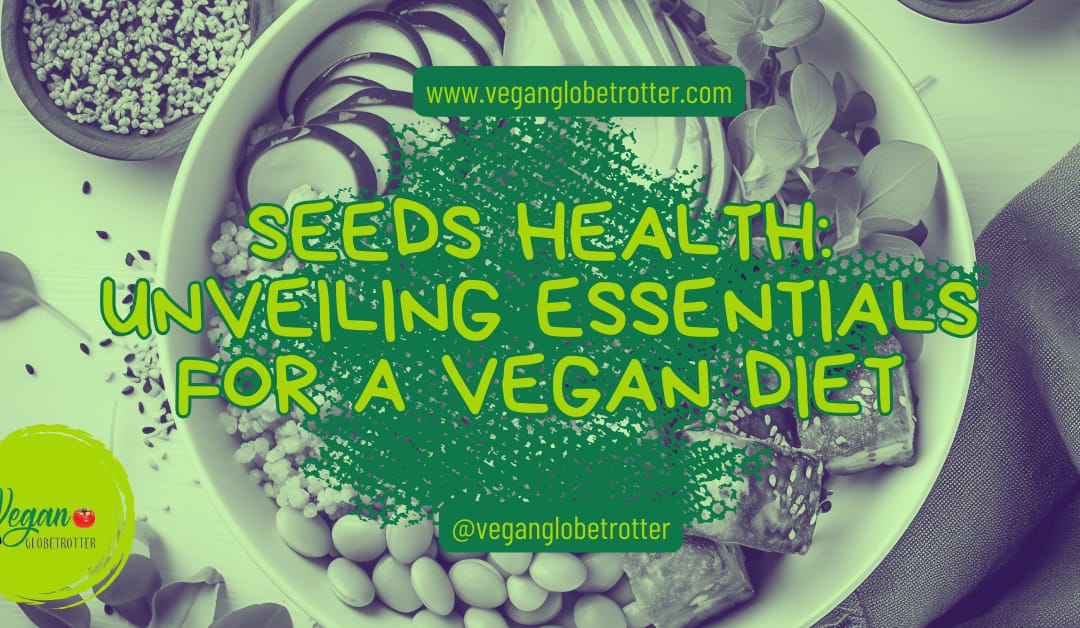



Don't miss out
when new recipes and information are added!
Join our newsletter for free recipes,
healthy living inspiration, and special offers
You have Successfully Subscribed!